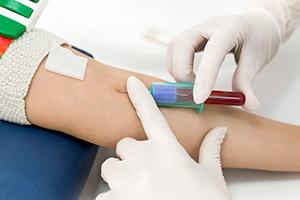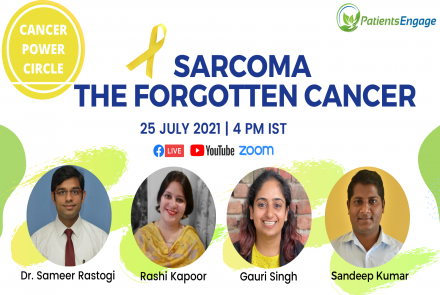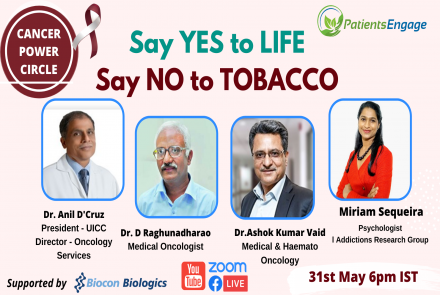
This time in our health by numbers/tests series, Dr Shital Raval takes a look at our platelet count that can be determined by a routine blood test. If the platelet count is high or low from the normal range, it can provide insight into various abnormalities and blood disorders including infections and cancer.
A platelet count test is conducted to check the number of platelets in the blood. This test is usually a part of the CBC or complete blood count. Here is a look at what platelet count means.
What are platelets?
Platelets are plate-shaped cells found circulating in the blood. They are the cells responsible for blood clotting and being the first responders to any broken blood vessel. A platelet count can provide insight into various conditions that may affect efficient clotting such as bleeding disorders, infections, blood cancers etc.
When is it ordered?
If a person presents with any of the following symptoms or signs, a CBC with platelet count is ordered.
- Frequent nosebleeds
- Prolonged bleeding from wounds, gums or GI tract
- Unexplained or easy bruising
- Heavy menstrual flow
- Petechiae (tiny red spots on the skin)
- Purpura (purple spots due to bleeding under the skin)
Normal range:
| 150,000 to 450,000 per microliter of blood |
What do the test results mean?
A low platelet count is called thrombocytopenia which means the platelet count is less than 150,000. This may be due to:
- Decreased platelet production
- Destruction of platelets in the blood
- Destruction of platelets in the spleen or liver
| RESULTS | POSSIBLE CAUSES |
|
Low platelet count (< 150,000) |
Idiopathic thrombocytopenia (ITP) or Immune thrombocytopenic purpura, are Autoimmune disorders where the immune system makes antibodies against platelets. |
| Chemotherapy or radiation therapy | |
| Drug induced decrease may be due to aspirin and ibuprofen, some antibiotics (including those containing sulfa), colchicine and indomethacin, H2-blocking agents, hydralazine, isoniazid, quinidine, thiazide diuretics, and tolbutamide. | |
| Heparin-induced thrombocytopenia (HIT) when a person who is on or received heparin therapy develops an antibody. | |
| Viral infections such as mononucleosis, hepatitis, HIV or measles. Mosquito-borne diseases such as dengue, chhikungunya or malaria. | |
| Leukaemia, lymphoma, or any cancer that may have spread (metastasized) to the bone marrow. Increased cancer cells in the bone marrow affect platelet production. | |
| Aplastic anemia—a blood disorder where the bone marrow does not make enough new blood cells. | |
| GI bleeding due to chronic stomach ulcers, polyps etc. | |
| Cirrhosis- scarring of the liver | |
| Sepsis-life-threatening bacterial infection in the body. | |
| Platelet destruction due to conditions like and hemolytic uremic syndrome (HUS), disseminated intravascular coagulation (DIC), or thrombocytopenic purpura (TTP). | |
| Toxic chemical (arsenic, benzene, pesticides etc) exposure |
*If the platelet count drops below 20,000 per microliter the patient is at severe risk of spontaneous bleeding. At this point platelet transfusion may be required.
A high platelet count is called thrombocytosis or thrombocythemia which means the platelet count is above 450,000. This may be due to:
- Primary Thrombocythemia where too many or abnormal platelets are produced by the bone marrow. In the absence of any blood disorders, it is called Essential Thromocythemia. It can even be due to a genetic JAK2 mutation.
- Secondary Thrombocythemia is where an external factor causes high platelet production.
| RESULTS | POSSIBLE CAUSES | |
|
Low platelet count (< 150,000) |
Primary Thrombocythemia |
Myeloproliferative disorder such as Polycthemia vera, Chronic Myeloid leukemia etc. |
| Von Willebrand disease | ||
| Secondary Thrombocythemia |
Iron deficiency or Hemolytic anemia |
|
|
Cancer of the lung, GI tract, ovary, breast or blood. |
||
|
Absence of a spleen. |
||
|
Inflammatory diseases such as IBS, or Rheumatoid arthritis. |
||
|
Infectious diseases like Tuberculosis |
||
| Certain medications such as Oral contraceptives. | ||
| Transient Thrombocythemia ( lasting for only a short period) |
Recovery after major blood loss |
|
|
Alcohol binge |
||
|
Vitamin B12 or folate deficiency |
||
|
Strenuous exercise/activity |
||
| Recent acute infection | ||
Mean Platelet Volume or MPV:
This is the measurement of the average size of platelets circulating in the blood. This result helps evaluate production or destruction of platelets if any in the blood. Young platelets produced by the bone marrow are larger in size then the older platelets.
| Normal range of MVP is 7.5-11.5 femtoliter |
| RESULTS | WHAT IT MEANS | POSSIBLE CAUSES |
| High MPV (larger size platelets) | Body is making new platelets! This increases clotting tendencies and risk of stroke or thrombosis. | Recent infection, surgery or blood loss. |
| Low MPV (smaller size platelets) | Body is not making new platelets! This increases risk of bleeding. | Bone marrow disorders like aplastic anemia, Chronic kidney failure, sepsis, enlarged spleen or toxic drugs. |
**A result of normal platelet count with High MPV is a sign of Idiopathic thrombocytopenic purpura, hyperthyroidism or chronic myeloid leukaemia! This indicates that the bone marrow is producing platelets but they are getting destroyed.
















